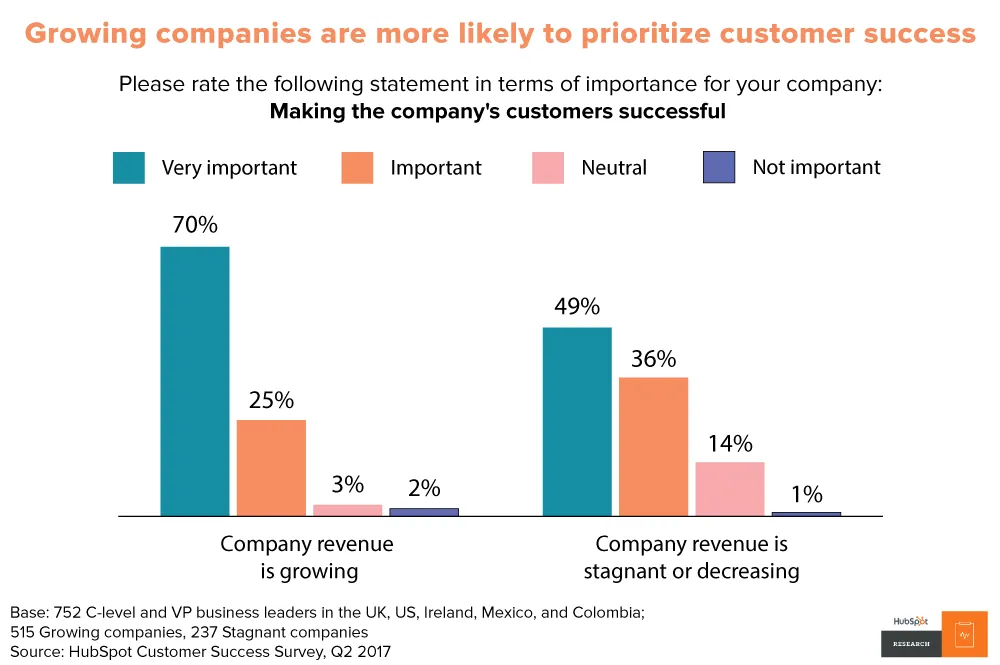Customer Perceived Value and Business Value
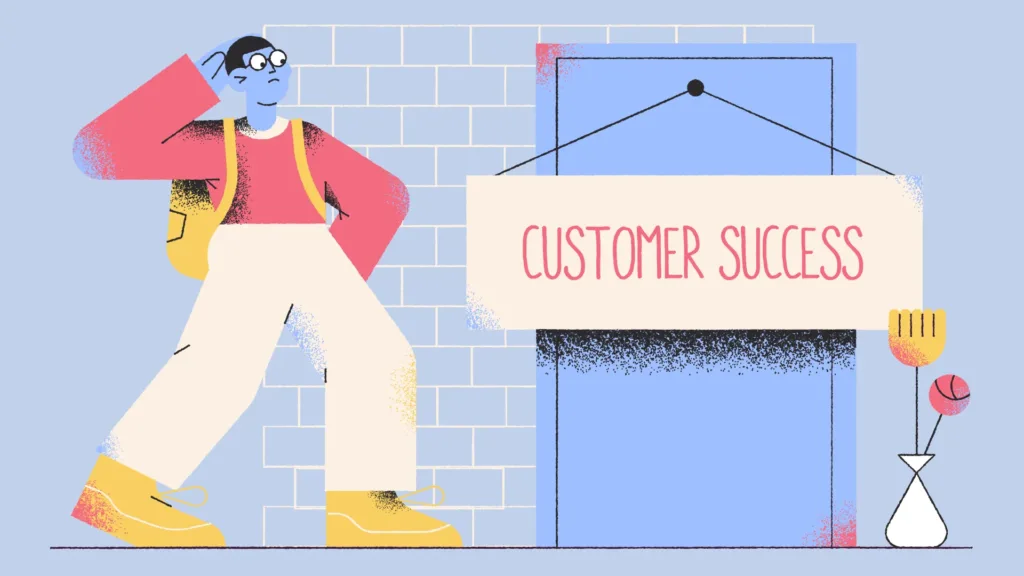
Have you ever worked with a customer success manager? If you work – or have worked – in SaaS, you most likely have. If you are reading this, you might even be a customer success manager yourself.
What you might not have realized is that the original idea behind the concept of “customer success” has affected us all.
Our lives as consumers are tied to monthly subscription contracts to the gym, Netflix, and other fun entertainment and recreation activities.
Our lives as SaaS professionals are also tied to different software solutions: ERPs, CRMs, subscription billing software, Email Automation, live chat, PoS, DMPs … the list goes on and on.
In order for digital businesses to stay afloat, there are two critical things they need to focus on: First, they need their customers to be happy with their software or services, and secondly, they must continuously work to prove their value to their customers.
The transition to cloud-based services and a subscription-based business model has created an unprecedented transformation in how companies deliver their products and services to customers.
Que customer success managers – the champion for both customers and businesses. These are the people who bridge the gap between perceived business value of the product or service sold and the actual business value felt by the customer.
Generally speaking, the idea of a customer success manager came about when companies began to realize that they needed a person who would be more than just the owner of the customer relationship.
Since the conception of customer success (which was only officially documented in the late 90s), leading companies like Siebel (acquired by Oracle) and Salesforce have been pioneers in customer success, and now, more than ever, SaaS companies are increasingly recognizing how critical it is to have a customer success team in place.
However, the role of customer success managers is incredibly multifaceted, and each company still struggles to define what their approach to customer success is. But one thing remains clear: Customer success will always be about ensuring that your customers achieve maximum value from your product. ROI, in this case, needs to be proven in a reciprocal manner for both the customer and the business.
To speak metaphorically, a customer success manager is your business’ personal value-add liaison!
In this post, I pose the following question to you: Are you actually a customer success manager? Or are you simply functioning more as an extension of customer service, support, sales, product management, or a personal therapist?
So, let’s assess how you’re performing in terms of managing both your business’ and customers’ expectations and evaluate whether you’re actually functioning as a customer success manager!
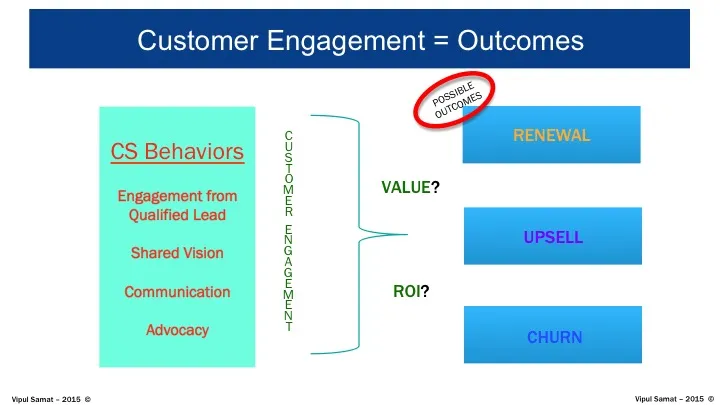
Table of Contents
The CSM Role: Where You Fit in the Customer Journey
As already mentioned, the role of the customer success manager is multifaceted – and compared to other general roles in the SaaS world, this role is relatively new.
On the one hand, it is a more developed approach to partnering with customers and managing their expectations. Customer success managers are proactive, empathetic, and committed to developing solid relationships with the customers because they want their customers to get business value out of the solution they offer. The role is focused a lot on leadership where they have to lead with the best interests of both the business and customer.
Since customer success is still a relatively new approach to doing business, the “true” definition of a customer success manager remains a bit of a grey zone. It’s safe to say that customer success teams worldwide are facing teething problems and are constantly having to re-evaluate their strategy and their customer success tactics.
However, as customer success becomes more and more of an integrated and permanent part of SaaS companies, the role of a customer manager is becoming clearer.
Let’s take a look at this LinkedIn job advertisement from Slack.
The “fastest growing B2B SaaS business” is looking to hire a customer success manager who has the following qualifications:
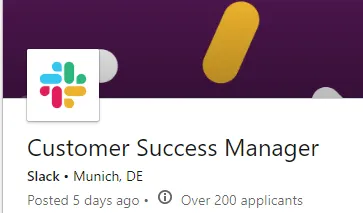
What You Will Be Doing
- Empathise with every aspect of the customer experience, putting customers’ needs first.
- Travel and meet with customers onsite to discover and understand their needs and help them develop a Slack onboarding process.
- Coach customers to be product experts and train their teams on Slack methodologies so they become increasingly self-sufficient.
- Maintain high levels of customer engagement and satisfaction with a focus on customer loyalty.
- Identify common customer challenges and actively suggest better solutions.
- Partner closely with other cross-functional team members to translate business needs and product requirements into new solutions for customers.
- Craft customer onboarding assets, adapt existing customer onboarding assets and work with product marketing to refine existing and create new onboarding assets.
- Help drive customer references and case studies.
What You Should Have:
- 5+ years of experience in a customer-facing customer success, account management or strategic consulting organisation. SaaS experience a benefit.
- Self-motivated, proactive team player with innovative ideas to inspire customer loyalty and adoption.
- Strong interpersonal skills and experience building strong internal and external relationships.
- Consistent track record of highly-professional customer service in a fast-paced, dynamic environment.
- Diplomacy, tact, and poise under pressure when working through customer issues.
If you go through each point, you can see that Slack is clearly looking for an individual who can not only empathize with the customer but also with internal teams. They want someone who is self-sufficient, diligent, and a leader.
There are many more responsibilities that a CSM should have in their toolbox, as well as a long list of requirements tasks they will need to be prepared to take on. This example from Slack serves as a good base for those looking to formulate what the role actually is and what you can expect when signing on.
So why do SaaS companies like Slack want to continue to hire people with these specific skills to perform these specific tasks? Why is this important for your business too?
For one, customer success is not a one-trick pony. Customer success has transformed into a company-wide, multi-channel mission and culture-based phenomenon. As Jason Lemkin mentioned at a Gainsight Pulse conference, “Customer success is where 90% of the revenue is.”
And if you’re still not convinced that your SaaS company doesn’t need to invest heavily in a strong customer success team right now, then you should consider some of these stats based on HubSpot’s research on how customer success feeds business success:

Are You Actually a CSM?
A customer success manager’s role usually consists of the items I mentioned above. However, like most positions in SaaS companies, the actual day-to-day looks different at every company.
But what makes a CSM a CSM? Aren’t they just account managers with a fancier title?
At the end of the day, what differentiates your role as a customer success manager from other traditional customer-facing roles is the focus on retention and value.
As a customer success manager, you are involved in a large portion of the customer lifecycle, meaning you are heavily invested in the long-term success of each customer.
Here are some questions we developed to help you identify if your current customer success role is actually customer-success focused .
- On calls with your customers, are you highly focused on selling other products or services over anything else?
- Are you mainly working on renewals and other leads with your customers?
- Do you mainly have phone calls for damage control situations and for talking about the status of support tickets?
- Are most of your customer interactions transactional, meaning you can pinpoint where the start and end of the interactions are?
- Is your team’s focus mainly on improving the quality and speed of CSAT and NPS scores?
- Is your quota based more on how many renewals you can close vs. success metrics?
- Are you heavily involved in the implementation process and focus more on helping the customer use your solution vs understanding what goals they want to achieve with the solution itself?
Customer retention, revenue, and engagement are all very important indicators of a good customer success plan.
If you answered yes to more than one of these questions, you might want to evaluate your current customer success strategy.
According to Nick Mehta, CEO at Gainsight, many CSM programs have failed to show results because of a few reasons, one of them being the lack of realistic goals.
But how would you know if your goals are “realistic”?
Realistic customer success goals are strongly linked to the customers’ lifetime value.
For instance, building strong customer loyalty is at the core of customer success because of the unending value of loyal customers to the company. To get to customer advocacy, your customers need top quality onboarding, adoption, and support experiences in order to refer other customers – thus increasing their lifetime value.
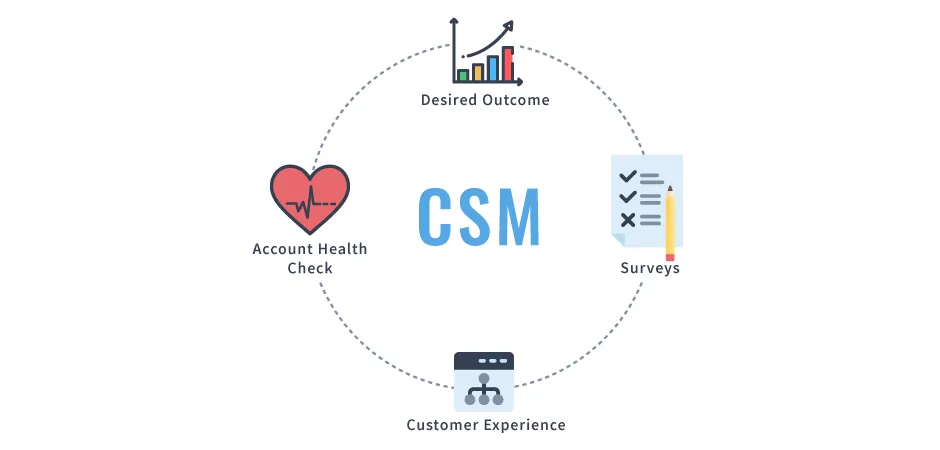
Customer Success Mission and the Future of a CSM
Having reviewed these questions, you may feel that the focus of your CSM role occasionally fluctuates and that sometimes your responsibilities demand that you perform as an expert in everything. In a role where you wear many hats, it is difficult to pinpoint if every task you do is contributing to becoming a better CSM. Of course, each day in the life of a CSM differs, and there can be some periods where you will need to focus only on one particular aspect.
Like I mentioned before, the profession is still being defined and it’s constantly evolving, so there is ample room to learn and develop.
What is great about being a CSM today is that there is a wealth of resources available to help you. There are excellent SaaS blogs covering customer success, such as ChurnZero, ClientSuccess, Natero, and Strikedeck.
Our blog, for example, offers insightful webinars with expert customer success managers, and we have our customer success playbook that was compiled by experts in the field. You can also attend a number of customer success and customer experience conferences worldwide where you get to listen to keynote speakers and network with professionals from different industries.
There are also certification/ study opportunities. For example,
- Udemy offers a Customer Success Manager 101: Foundations to your CSM career course, where you can gain a better understanding of your role as a CSM and understand the fundamental principles of customer success.
- With SuccessCoaching, you have access to courses and workshops where you have the opportunity to earn industry-recognized certification.
- The Success League provides a research-based Customer Success Certification Program, which offers long-term learning, best practices, and tools that you can use immediately,
To this day, the role of a customer success manager can vary – and sometimes by a lot. But the reason why we need CSMs for our businesses remains the same.
At the end of the day, it all comes down to having your customers realize the true value of your business in a way that is almost tangible. So whether you’re already an expert in the field or you’re just starting out in your role as a CSM, always keep this in mind.
You can always refer to these questions as you continue on your customer success journey (so be sure to bookmark this page!), and never underestimate the importance of the critical role you play in the SaaS industry!
